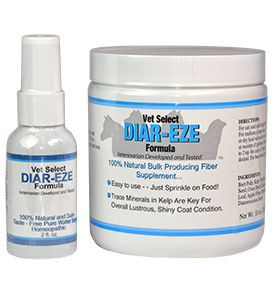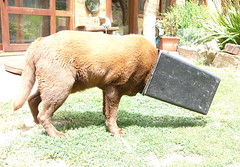Did your pup have a meal and something bad brewed in its stomach? Or maybe he just thinks that twigs and grass are good substitutes for puppy food. Whether or not this is the reason your little guy has puppy diarrhea, one of your top priorities should be taking him to the vet. While you may be sure that the reason your puppy is having problems is his diet or stress, there could be a whole mess of problems with your puppy internally that you aren’t able to see. If your puppy is actually ill, it’s better to check and make sure that they are good and well than to let it go and have your puppy be actually sick.
After taking your pet to the vet for their puppy diarrhea, you will probably get a prescription remedy for your dog. If you don’t, your vet is probably confident that the diarrhea will wear off quickly and was stress-related.
However, in an animal as small as a young puppy, you want to ensure their internal health. That’s why it is important for you to invest in a holistic product for your animal as a supplement to veterinarian care. Allergic Pet’s Diar-Eze is the best way for you to alleviate puppy diarrhea and the suffering of your pet without needing a prescription. The herbal formula in Diar-Eze makes it an all-natural remedy for all puppy diarrhea. The good thing is that you can also use this with your prescription from the doctor. That’s great, because you don’t have to stop one treatment to begin another. Don’t let your pet continue suffering, and don’t pump them full of chemicals and drugs to fix their diarrhea. Instead, give them the all-natural remedy: Diar-Eze. Your puppy will thank you in the end.




